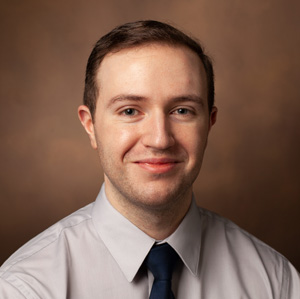
It’s time to revise the textbook entry for vasopressin production.
For 100 years, it has been thought that vasopressin — a hormone that regulates water and blood pressure homeostasis — is only produced in the brain.
Now, Vanderbilt University Medical Center investigators have discovered that vasopressin is also produced in the kidney. Their findings are featured on the cover of the Dec. 22, 2022, issue of JCI Insight.
“We need to reevaluate what we know about vasopressin,” said J.P. Arroyo, MD, PhD, assistant professor of Medicine in the Division of Nephrology and Hypertension and first author of the study. “Our current understanding of the physiology of this hormone is incomplete.”
The understanding has been that vasopressin, also known as antidiuretic hormone, is secreted by the brain’s hypothalamus under two conditions: when the concentration of salt in the blood is too high or when blood pressure is too low. Vasopressin then acts on receptors in the kidney to increase the amount of water reabsorbed from the urine back into the circulation, increasing blood pressure and diluting the salt.
Arroyo became intrigued by a common clinical finding of hyponatremia in hospitalized patients.

“Essentially, sodium is diluted because patients are holding on to water,” Arroyo said. “We see this all the time, and attribute it to a condition called ‘Syndrome of Inappropriate Antidiuretic Hormone secretion.’ We know vasopressin is elevated, but we don’t know why.”
A long list of causes for inappropriate vasopressin secretion includes pain, nausea, cancer, medications and infections.
“We wondered if vasopressin is being made somewhere else, and we just hadn’t found it yet,” Arroyo said.
Working with Raymond Harris, MD, the Ann and Roscoe R. Robinson Professor of Nephrology, and Gautam Bhave, MD, PhD, assistant professor of Medicine, Arroyo decided to search for vasopressin production by the kidney.
The researchers found that human and mouse kidneys express vasopressin mRNA. Using a new antibody that they developed, they detected production of the vasopressin precursor protein by human and mouse kidneys (vasopressin is cut from the precursor protein and disappears in minutes, making it difficult to quantify directly).
Salt treatment of isolated mouse kidney cells increased production of vasopressin, which the researchers showed could activate vasopressin receptors. Restricting mouse water intake also increased kidney vasopressin mRNA and protein expression.
All of the team’s data point to one conclusion, Arroyo said: “The kidney makes biologically active vasopressin.”
Now, researchers will need to explore what other tissues might be producing vasopressin and what that production means, Arroyo added.
“If we have fundamentally misunderstood how this hormone is being regulated — because it’s being produced in other tissues — then we probably don’t fully understand the physiological and pathological stimuli for vasopressin production,” he said. “We’ll be working to deconstruct the pathway in the kidney. Under what stimuli does vasopressin go up; under what stimuli does it go down?”
“As I witnessed Dr. Arroyo conceptualize and execute this project, I was fascinated not only by the innovative and transformative aspects of his research, but also with his relentless enthusiasm and perseverance to complete a challenging project from the beginning to the end,” said T. Alp Ikizler, MD, the Catherine McLaughlin Hakim Professor of Vascular Biology, professor of Medicine and director of the Division of Nephrology and Hypertension at VUMC. “His findings could provide a mechanistic understanding to a large proportion of patients with progressive kidney disease with potential avenues for targeted therapeutics. In addition, the manner that Dr. Arroyo challenged the 100-year-old dogma based on his clinician observations and how he developed a stepwise approach to answer the question should be an example to all individuals seeking a career as a physician-scientist.”
Joining Arroyo, Bhave and Harris as co-authors of the JCI Insight paper are Andrew Terker, MD, PhD, Yvonne Zuchowski, Jason Watts, MD, PhD, Fabian Bock, MD, PhD, Cameron Meyer, Wentian Luo, MD, PhD, Meghan Kapp, MD, Edward Gould, MD, Adam Miranda, Joshua Carty, MD, Ming Jiang, MD, PhD, Roberto Vanacore, PhD, Elizabeth Hammock, PhD, Matthew Wilson, MD, PhD, Ming-Zhi Zhang, MD, and Roy Zent, MD, PhD.
This research was supported by the National Institutes of Health (grants DK051265, DK095785, DK062794, DK007569, DK114809, DK116964, DK069921, DK127589, ES103361, TR002243), Department of Veterans Affairs, and Vanderbilt Center for Kidney Disease.










